A new year is coming soon! New years are an ideal time to create and review your financial wellness checklist.
What’s a financial wellness checklist? Well, just as many people focus on personal wellness by sticking to an exercise plan or making sure they eat healthily, financial wellness sets forth specific manageable tasks that you should take care of on a regular basis. (A financial advisor can create a comprehensive financial plan which encompasses all of the components of a wellness checklist.)
Then, just as personal wellness overall is optimized by exercising or eating vegetables every week, your financial wellness is optimized by doing these tasks.
Are you on the right financial path? Contact Prism Planning Partners today for a consultation!
Here are 9 components of your 2022 financial wellness checklist.
1. Determine your 2022 goals
Financial well-being is all about reaching your financial goals. What’s are your most important financial goals for the coming year? It could be saving to buy a house, establishing a handle on your spending, traveling, upping your retirement savings…the list could be endless. It all depends on what is most important to you.
2. Create or maintain a budget
A budget is also key to financial wellness. A budget is a record of your income and expenses over time. It’s also a plan for how much will come in and how much will go out! Only by creating and maintaining a budget will you know how much disposable income you have to meet your goals.
3. Review your overall savings
Everyone should have an emergency savings fund of from three to six months’ worth of earnings. Why? Because emergencies happen! Say your car breaks down, and you need it to get to work. Car repair can cost more than you have on hand.
Other common emergencies? Losing your job or having your hours cut, trips to the emergency room, sudden child care needs — and more.
4. Figure out how much you need to save for retirement
You also need to work with a plan of how much you need to save for retirement. A financial planner can help, as the amount depends on your age, your likely Social Security benefits (if you are eligible), the investments you choose and their forecast rate of return, and more.
5. Review your retirement savings
Once you have an overall figure for retirement, work toward meeting it! It’s prudent to save as much as possible for retirement. If you have a 401(k) or similar defined contribution (DC) plan at work, take advantage of it.
Contributions are made pretax, which can save you on taxes overall. In addition, the money grows tax-free until you withdraw it.
If your employer offers a matching 401(k) plan, you are forfeiting money they will give you if you don’t participate. If you make $70,000 and can contribute 6 percent, your contribution will be $4,200 per year. If your employer has a 100 percent match, though, your contribution hits $8,400 every year.
If you don’t have access to a DC plan, an Individual Retirement Account (IRA) is also a great way to save. You can contribute up to $6,000 per year, and contributions to traditional IRAs are tax-deductible. If you are 50 or over, the allowable contribution is $1,000 more per year.
6. Determine your investments
Part of financial wellness means not only savings and funding your retirement, but determining what you will invest in, both for general investments and for your retirement funds.
Briefly, there are several asset classes. Stocks may have the possibility of returning the most, but stocks are also volatile and can decline in price as well as rise, so they contain more risk than other classes.
Both bonds and cash currently have historically low rates of return, because U.S. interest rates are historically at low levels. But both are also stable and present little risk. Most portfolios utilize stocks for appreciation and bonds or cash for the preservation of capital.
A financial advisor can help you plan both asset classes and specific choices.
7. Maximize your employee benefits
Many workplaces offer important benefits that can augment your financial wellness. Check to see if you have the following.
Medical savings plans – A Flexible Spending Account (FSA) allows you to save money pre-tax as well. The expenses can be used for medical and dental expenses. Be careful not to save more than you will use, because FSA accounts must be used within a designated period, often a year. If you don’t use the money, you lose it.
A Health Savings Account (HSA) can be an even better deal than an FSA. HSAs can only be used with a high-deductible savings account so be sure you are eligible. In addition, that money is yours; if you don’t use it within the year, you can roll it over indefinitely.
Commute savings – Many employers offer discounts on passes to local public transportation, such as buses and rail lines.
Gym memberships – If your employer offers a free or discounted pass to local gyms (or has a gym onsite), you can save the money you would have spent otherwise.
8. Review your insurance needs
Risk management is part of financial wellness — and an overlooked part. Insurance is a central part of risk management. Your assets, for example, should all be insured: home, car, other vehicles (sport, boat), and significant assets such as jewelry.
If you have dependents, children, or a spouse, you need life insurance. (If you don’t have dependents, life insurance is an unnecessary expense). You need health insurance unless you are covered by a spouse’s plan.
9. Review your estate planning
Estate planning tends to be a more overlooked part of financial wellness as well, but it’s important. You should, for example, have a will if you have assets, at any age. If you die without a will, there is no legally-binding record of where and to whom you want your assets to go.
Your estate will go to probate, and the court decides to whom your assets will go, and the process can take months or years. Unless you have joint accounts, your spouse may not have access to your accounts until probate is completed.
A holistic financial planner can help you with every item on the financial wellness checklist.
At Prism Planning Partners, located in Libertyville, IL, we are CERTIFIED FINANCIAL PLANNER™️ Professionals committed to facilitating important questions so that we can help you explore all of your opportunities. We offer a broad array of holistic financial planning and consulting services for our clients-including retirement, investment, and estate planning.
Contact us today and let us illuminate your possibilities!



